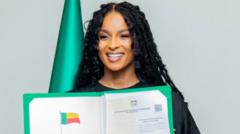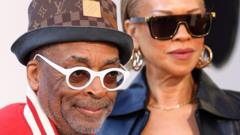With the imminent presidential elections in Ivory Coast approaching, Tidjane Thiam's disqualification over citizenship has ignited fears for the country's democratic integrity, elevating the concerns over the political landscape to a broader issue of disenfranchisement and identity politics.
Ivory Coast's Political Turmoil: The Toll on Democracy

Ivory Coast's Political Turmoil: The Toll on Democracy
The Ivorian presidential race faces uncertainty as Tidjane Thiam is stripped of citizenship, raising concerns over democracy in the nation.
In the heart of West Africa, Ivory Coast, a nation renowned for its cocoa and football talent, is witnessing a political crisis that could undermine its democratic fabric. Tidjane Thiam, once a celebrated global finance executive, now faces the bitter realities of Ivorian politics as his aspirations for the presidency hang in the balance, following a court ruling that he lost his citizenship multiple decades ago due to acquiring French nationality.
With elections scheduled for October, Thiam's political journey, marked by optimism upon his return to Ivory Coast in 2022, has encountered an abrupt obstacle. On April 22, the court's decision declared Thiam ineligible for presidential candidacy, as Ivorian laws provide no recourse for appeal on such matters. His selection as the Democratic Party of Ivory Coast's (PDCI) candidate followed the passing of long-standing opposition leader Henri Konan Bédié, positioning Thiam as a key alternative to current President Alassane Ouattara.
The landscape looks grim for democratic dissent in Ivory Coast as Thiam’s elimination further consolidates the political power of Ouattara, who is anticipated to run for an unprecedented fourth term. Three other prominent opposition figures are already barred from the race, raising alarms about a lack of viable challengers in the electoral arena and exacerbating public disenchantment with the political elite.
Despite an upsurge in economic growth under Ouattara's leadership, disillusionment brews among the youth, who comprise a significant demographic in a nation grappling with identity politics reminiscent of the contentious eras of the 1990s and 2000s. The historical narrative of "ivoirité," or "Ivorian-ness," which once fueled civil unrest, echoes through the present circumstances as Thiam battles legal restrictions that hinder his political ambitions.
His case underscores the complexities of dual nationality in Ivorian law and poses deeper questions regarding citizenship and identity in a country seeking growth and stability. As Thiam's legal team contests the ruling, the political terrain remains tense, proposing questions of whether a negotiated pathway can be forged to reinstate his eligibility and that of other excluded candidates ahead of the polls.
International observers and local citizens alike await the outcome of this convoluted saga, which holds implications not only for Ivory Coast but for the democratic landscape across West Africa. The recent successes in countries like Liberia and Senegal have tasted of democratic renewal, fuelling hopes for a similar narrative in Ivory Coast – a vision now overshadowed by the specter of political exclusion and identity struggles that threaten to undo years of progress.


















